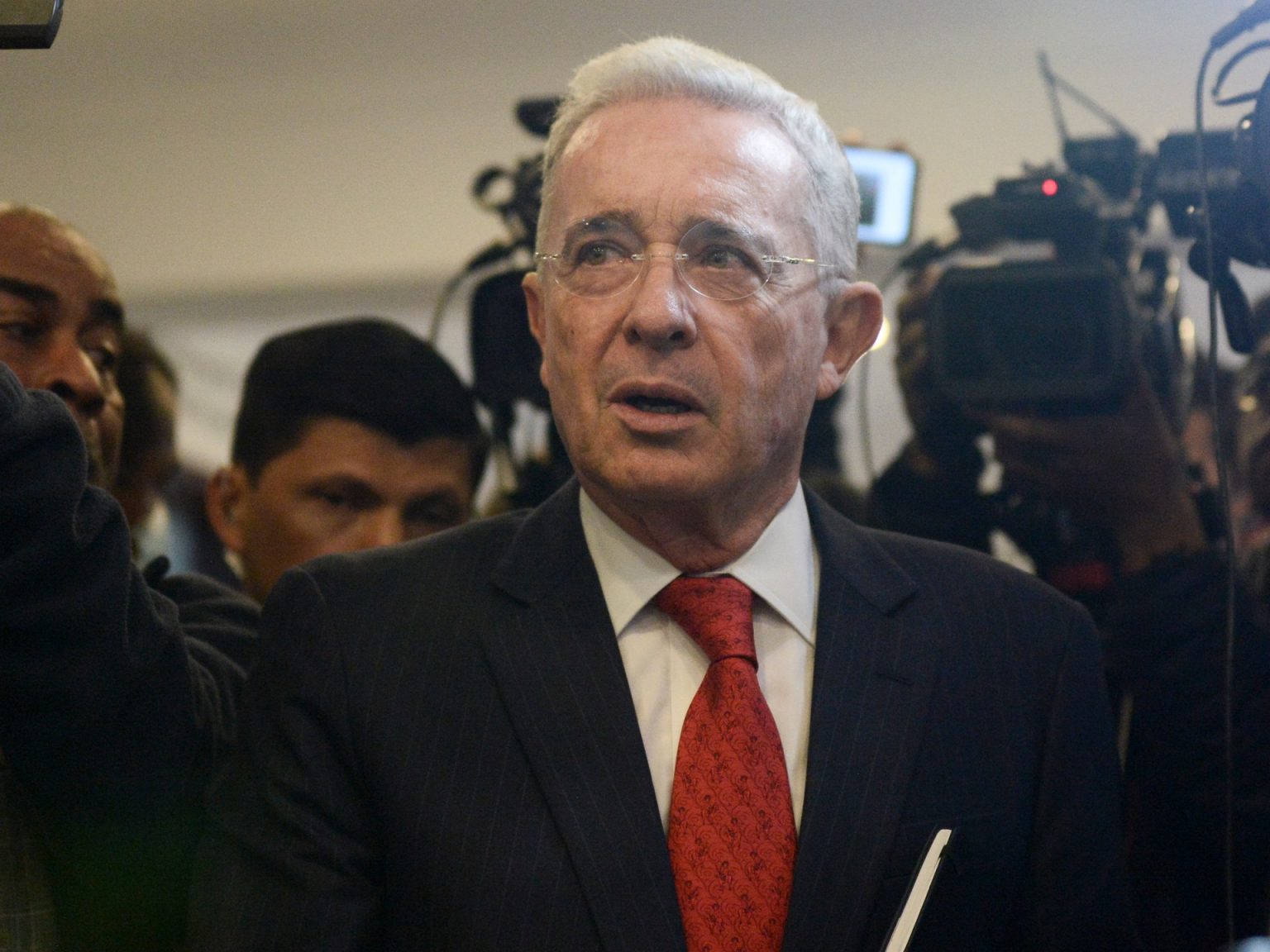Former Colombian President Alvaro Uribe has been charged with witness tampering and bribery, making him the first head of state to face a criminal trial in the Latin American nation. The charges stem from an investigation into Uribe’s alleged ties to right-wing paramilitary groups, with accusations that he offered cash or benefits to witnesses in order to discredit a political opponent who was investigating his family’s connections to these armed groups. If convicted, Uribe could face up to 12 years in prison.
Uribe, who served as president from 2002 to 2010, has vehemently denied any wrongdoing and has accused Colombia’s chief prosecutor’s office of political vengeance. Despite his protests, there are wiretapped phone conversations in which the former president can be heard discussing efforts to influence witnesses set to testify against him. Uribe claims that his conversations were illegally intercepted and that he was merely seeking to defend his reputation. However, Judge Sandra Heredia rejected his request to have the case dismissed, moving the trial proceedings forward.
The case dates back to 2012, when Uribe, then a senator, filed a complaint against left-wing senator Ivan Cepeda, accusing him of trying to falsely link him to paramilitary groups. Instead of investigating Cepeda, the Supreme Court turned its focus on Uribe, leading to the current charges against him. The investigation against Uribe began in 2018 and has faced a series of obstacles and delays, with different attorneys general seeking to close the case. Attorney General Luz Camargo, appointed by Colombia’s first left-wing president, Gustavo Petro, has given new momentum to the case. Uribe, a prominent figure on Colombia’s political right, has been a vocal critic of the left-wing Revolutionary Armed Forces of Colombia (FARC) and opposed the 2016 peace accord that led to the rebels disarming.
Uribe expressed feeling hurt at being the first former Colombian president to have to stand trial in court. Despite his denial of any wrongdoing, the evidence against him appears substantial, with wiretapped conversations revealing discussions about influencing witnesses. If convicted, Uribe could face up to 12 years in prison, a significant fall from grace for a leader who was once celebrated for his tough stance against armed groups in Colombia. The trial proceedings will shed light on the alleged connections between Uribe and paramilitary groups, as well as the extent of his involvement in attempts to tamper with witnesses. The outcome of the trial will have significant implications for the political landscape in Colombia and may further divide the nation along ideological lines. Despite his protests of innocence, Uribe will now have to face the legal consequences of his alleged actions.


